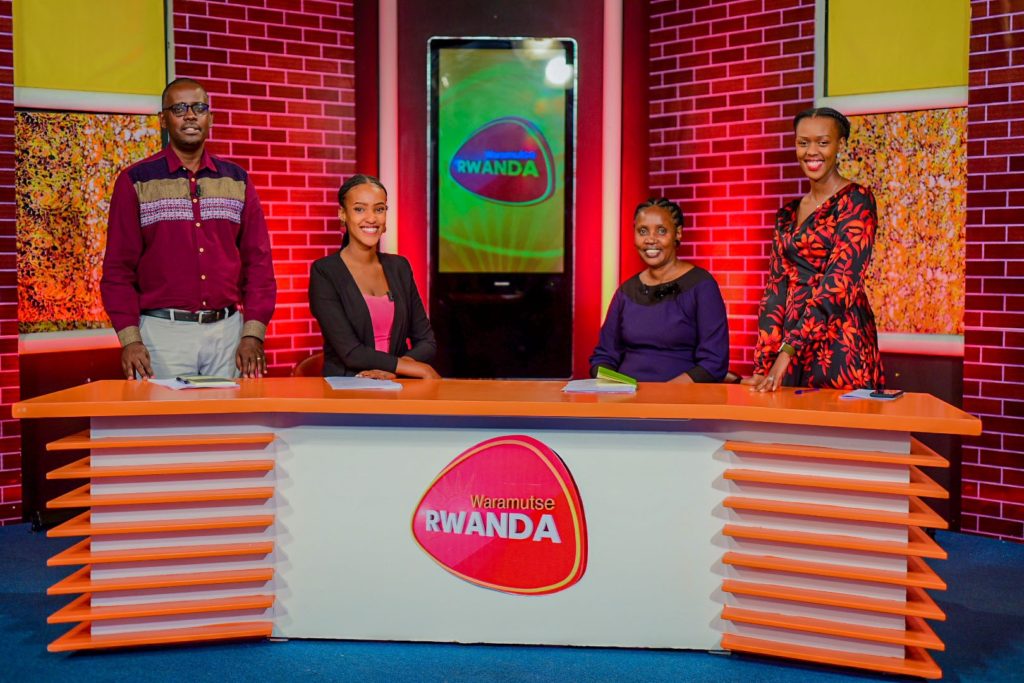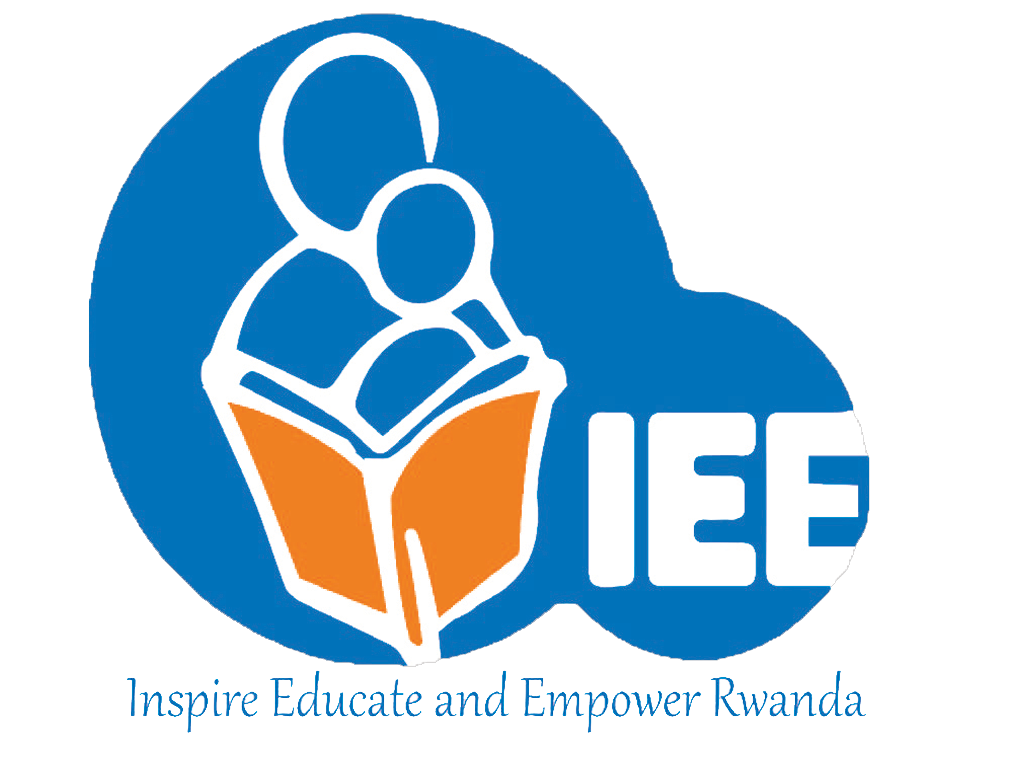Play is essential in child development. It makes children learn to socialize, solve problems, to mature and most importantly, to have fun as they learn. Play connects children with their imagination, environment, parents, family and the world at large.
The LEGO Foundation and UNICEF are collaborating to support integration of Learning through Play as a pedagogical approach, in support of implementing the primary school competence-based curriculum in Rwanda. Inspire, Educate and Empower Rwanda (IEE) is collaborating to implement the Learning through Play programme, in collaboration with the Rwanda Basic Education Board, the Ministry of Education’s department implementing basic education.
As part of efforts to introduce play for learning in Rwanda, UNICEF in collaboration with other LEGO -supported partners implementing other components of Learning through Play programmes, have been organizing a series of communication activities around play.
One of the major communication platforms has been radio talk shows and on the morning of Friday, October 8, 2021, IEE Country Director, Mr. Murenzi Emmanuel and VSO Project Quality and Delivery Manager (PQDM) Ms. Ruth Mbabazi went live on national Television, Rwanda Broadcasting Agency Waramutse Rwandamorning show
talking about the power of play for children’s learning. Hosted by Rwanda Television program hosts; Yvonne Ingabire and Nadia Umutoni, Emmanuel and Ruth revealed a lot about play as an approach to learning.
“Play is natural for children and a primary way of self-expression. Therefore, Educators should tap into the power of play to support children’s learning, where children are encouraged to use play as their familiar territory. Play also facilitates children’s creativity”, says Murenzi.
The Learning through Play programme is building onto existing evidence-based teaching approaches involving learner-centered strategies to facilitate teaching. In its White Paper, The LEGO Foundation indicates Learning through Play as an active learning approach. Active learning is an approach where learners are actively involved or engaged in the learning process. Active involvement is characterized by learner choice or autonomy regarding the task itself, as well as how and when learners respond. Active learning leverages learners’ own interests to engage them in the learning process. It uses hands-on, authentic, real-world related activities with teachers occupying the role of facilitator rather than didactic instructor.
In recognizing children’s self-drive as they learn, Ruth advises that adults should meaningfully facilitate children to play. “Children are masters of play: they know how to play. It is their territory. Adults should enter it with purpose, to orient play towards meaningfulness and usefulness for learning principles of addition, subtraction, new words, and other competencies”- Says Mbabazi.
Complementing Mbabazi and in agreement with The LEGO Foundation advocacy for children’s autonomy to learn as they explore their world, Murenzi underscores the important role that parents must play in supporting children’s learning. “As adults, parents should recognize that children are growing into an uncertain, dynamic world. They therefore should be prepared to face uncertainties of the 21st century. And play is a vehicle into that future’ – Says Murenzi.
Mbabazi stressed how Learning through Play enables children to be self-directed, giving them independence in learning. She further says “Giving play materials to children is not just enough as parents. We should commit time to play meaningfully with them, ensuring that each game we play, teaches them something”

©IEE/2021/Ndayishimiye
In contextualizing Learning through Play, Murenzi explained the fact that the Competence-based Curriculum for Rwandan primary schools advocates for learner-centred pedagogies using materials to facilitate children’s interaction with content, to lead to solid, experience-based learning, which will support development of desired competencies.
One interesting revelation is that play materials are anything available in a home or school environment. Anything from stones, bottle tops, cups, and any other material and equipment can be carefully used to facilitate children’s learning.
Mbabazi emphasizes the need for parents to recognize that if used thoughtfully to support children’s learning, most home materials can be useful to teach children the competencies they need to learn. “Parents should set up home environments that are safe and useful to facilitate children’s play”, Says Murenzi.
The LEGO Foundation White Paper recognizes the importance of home environments in supporting children’s learning. The LEGO Foundation asserts that Learning environments should be intentionally designed to maximize opportunities to foster creativity, social interaction, experimentation, and a love of learning.
Play equips children with values and attitudes of cooperation and interpersonal respect. Supporting children to play as they learn, is a responsibility of both fathers and mothers, different from what it has traditionally been, where fathers were left out of playful activities with their children. Play is also important to children’s acquisition of foundational literacy and numeracy abilities.
Making play meaningful and well-planned
The Learning through Play program requires implementers to use play meaningfully, both at school and at home, not to use play for play’s sake, rather as a means to an end of learning. As the Government of Rwanda strives to implement Competence-based Curricula to make learning more relevant, learning through play will support overall skill development for children and help them acquire 21st Century skills. Each activity has to be carefully planned to facilitate children’s learning and acquisition of abilities, values and attitudes that facilitate their development.
While celebrating the 2021 World Teachers’ day, the Honorable Minister of Education Dr. Valentine Uwamariya encouraged teachers to double their role in improving the quality of education, including taking English proficiency courses to master the language as the major medium of instruction. In this regard, school leaders are instrumental in supporting teachers to get play-based teaching and learning materials and facilitating school-based continuous professional development activities, through learner-centered play-based pedagogies.
The TVET policy in Rwanda continues to promote teaching through the hands-on- skills method and to this effect, children also need to be given opportunities to play with materials in a relaxed setting, before using them in planned learning tasks. This is essential for nurturing children’s independent creativity and attaining problem-solving skills.
Play should include all children regardless of their physical and mental abilities and their individual circumstances. UNICEF Strategic Plan 2018-2021 realizes the rights of every child, especially the most disadvantaged, to ensure that the education system is safe, resilient to crisis, more gender-responsive, and inclusive while delivering better learning and skills outcomes. Even in Rwanda’s Education Sector Strategic Plan (ESSP) 2013/14–2017/18 one of the priorities is increasing equitable access to education for children with special educational needs by establishing special schools.
In emphasizing the importance of play for acquiring competencies and 21st Century skills, Murenzi advocates for play as tapping into children’s creative abilities which they nurture as they are engaged in building and tearing things apart. “Educators, parents, and community members need to tap into their own abilities to use play as a pedagogical approach and make it their corporate responsibility to support children’s learning. This is the springboard for an imaginative, able generation of learners, which Rwanda and the world at large need”- says Murenzi.
Reactions to this content may be addressed to: ieerwanda.directorate.org@gmail.com
